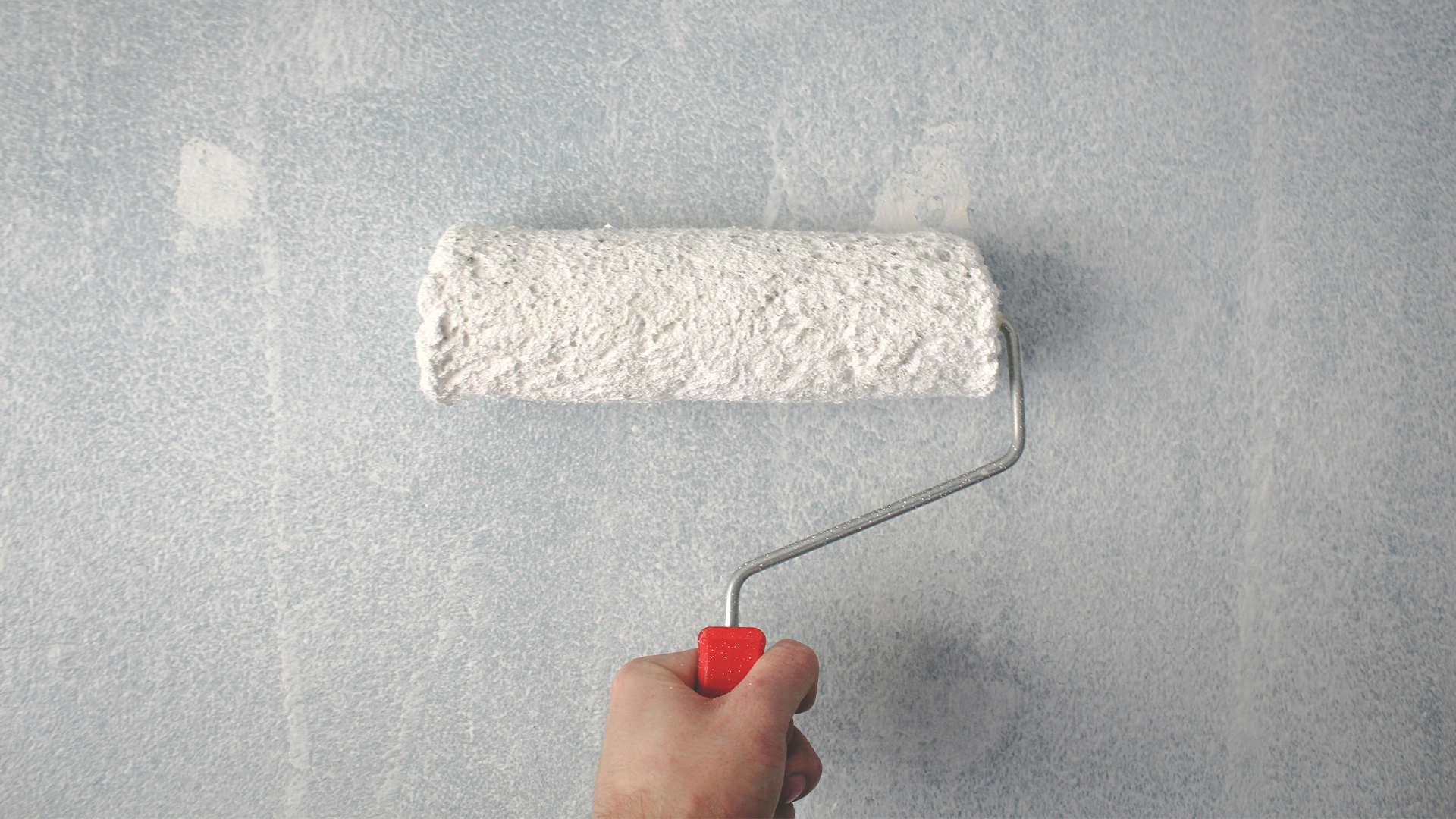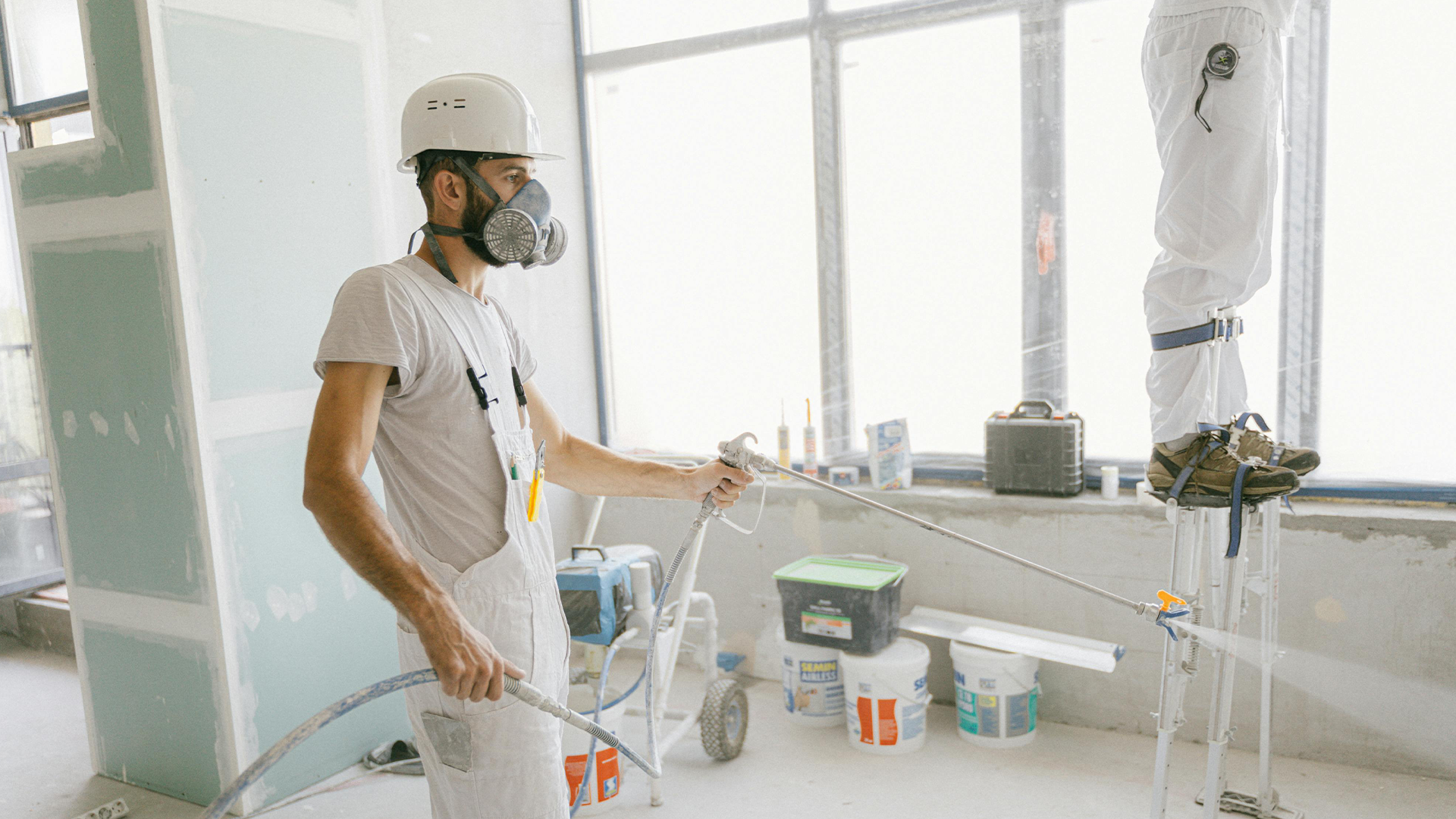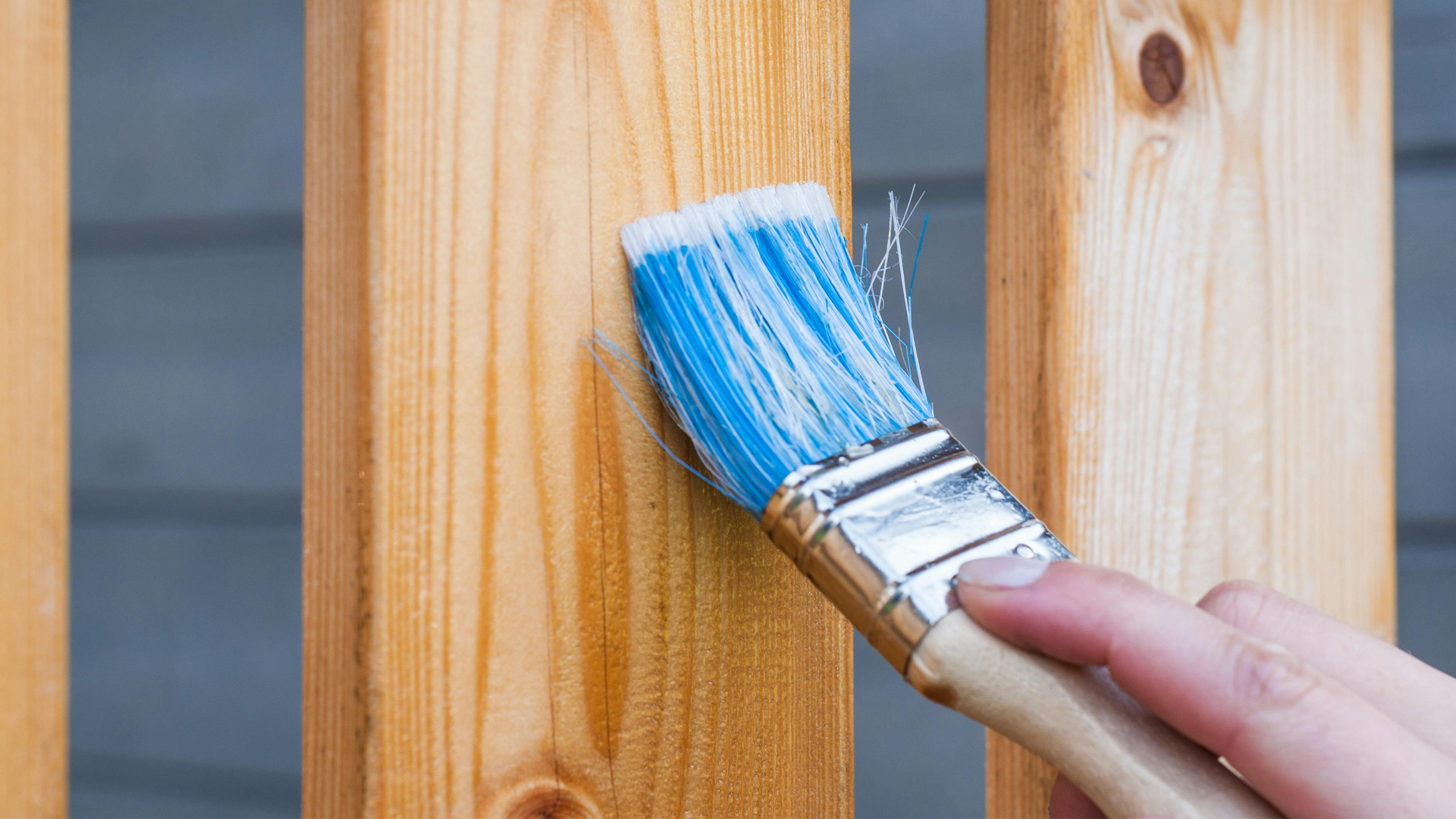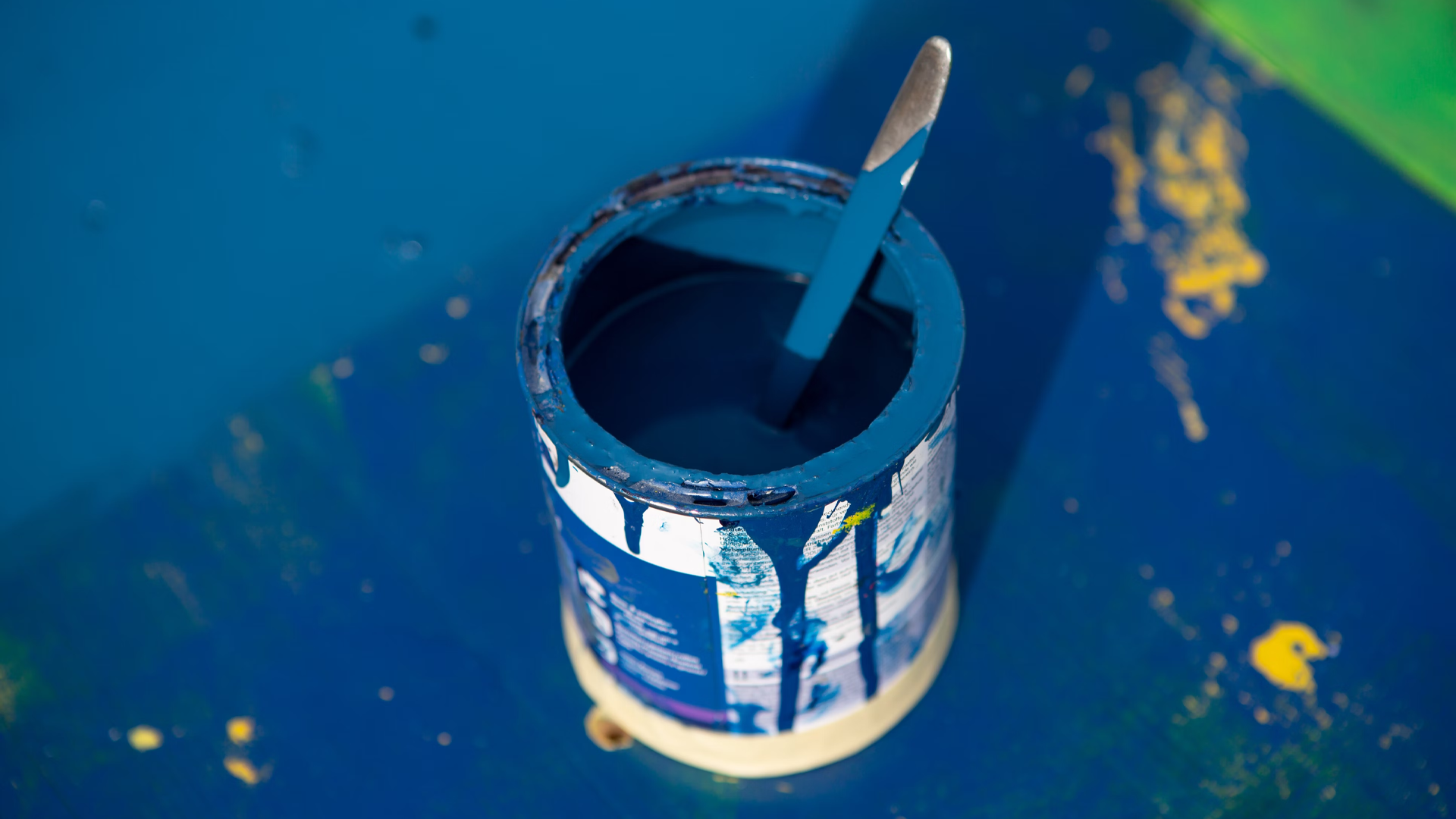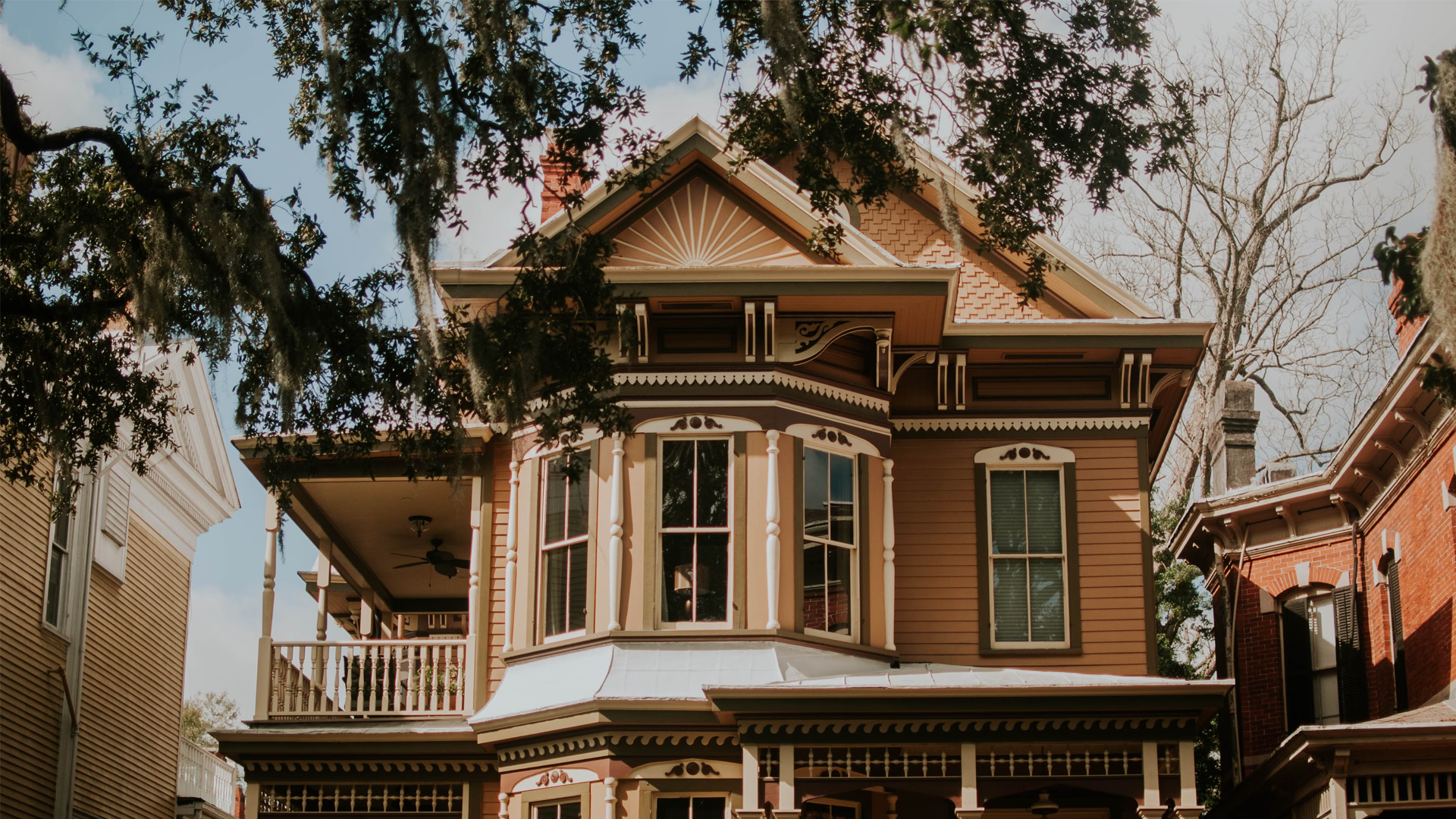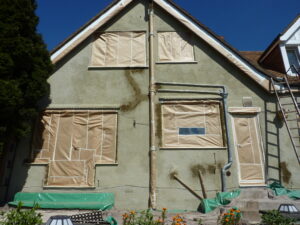
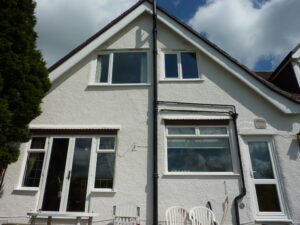
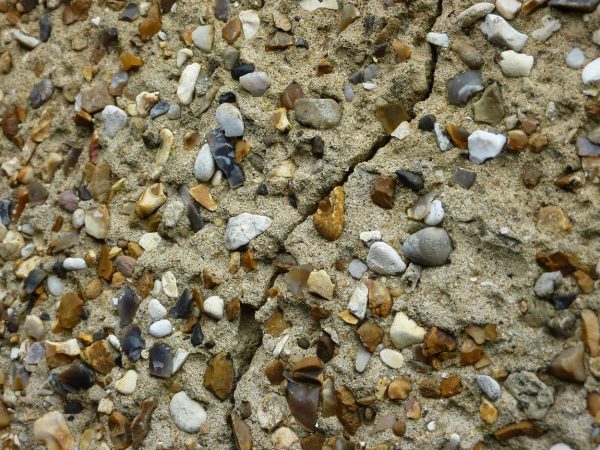
Key Take Aways
Pebbledash, or roughcast, emerged in the early 20th century to mask uneven or poor-quality brickwork by flinging pebbles, gravel, flint chips, or shells onto wet mortar.
While initially low-maintenance, pebbledash deteriorates over time, with pebbles falling off, moisture penetrating, and freeze–thaw damage causing cracks and damp inside.
Renovation options include:
Repairing damaged areas to stabilise existing pebble dash.
Removing the surface entirely and applying a traditional render finish.
Covering with a spray‑applied textured finish—a durable, weather‑resistant option that refreshes the look without full removal.
Painting pebbledash is only a short‑term fix, requiring reapplication every few years and potentially trapping moisture beneath the coating.
Spray‑applied textures offer a longer‑lasting, low‑maintenance solution, retaining the wall’s texture while providing better weather resistance.
Complete removal is messy, labour‑intensive, and may damage underlying brickwork, but it allows for a modern or natural brick finish.
Re‑rendering over pebbledash is feasible if properly prepared, though using lightweight or thin‑coat systems is crucial to avoid weight and damp issues.
Pebbledash, a staple of home exteriors up and down the country, can be tricky to resurface when it begins to fall apart – which is inevitable given that the majority of them were first formed around 70 years ago during the post-war boom. So, if you’re stuck with a crumbling façade of sand, cement and pebbles, what should your next move be?
To help you answer this question, we have put together this guide to everything you need to know about pebbledash.
But first, we have to define exactly what pebbledash is. The exterior wall surface is formed when an array of pebbles are literally thrown at wet render, creating the pebble-strewn walls we are all so familiar with today. It differs slightly from roughcast render, which we could call its cousin. Instead of the pebbles being thrown into the render, roughcast render is formed when the pebbles are already incorporated into the mix of lime, cement, sand and water that we call mortar. Pebbledash then, perhaps the most haphazard of wall surfaces, can also seem to require an equally haphazard solution.
How to remove pebbledash?
Removing pebbledash is an extremely arduous and risk-laden endeavour. Ripping pebbledash forcibly from the walls of your home is bound to invite all kinds of structural issues – not to mention the potential invalidation of your home insurance.
How to cover pebble dash?
One of the first questions that generally pops into their heads of deteriorating pebbledash owners is how can I cover it up? And that is a good question for two reasons – aesthetically, patchy pebbledash is far from pleasing and practically, patchy pebbledash can allow heat out of your home and water into it.
As ever, the answer to this question depends on the ins-and-outs of the individual situation (we will always dispatch a qualified surveyor to comprehensively assess your site before beginning work). One solution which won’t work is the introduction of another layer of pebbledash – your home won’t be able to bear the increased weight. Pebbledash can be covered though; it just has to be done so with a substance that is up to the job, which leads me to the next common question…
How to paint pebble dash?
Paint, as a method of cover, is a no-go. Regular masonry paint is ill-equipped to create a protective weatherproof seal around brickwork. If that wasn’t already enough, the time-consuming nature of such an undertaking is enough to completely derail any hopes you may have harboured of simply painting over your damaged pebbledash. By hand, painting over pebbledash is excruciatingly long-winded and even once accomplished, you can’t be sure that you have covered all the cracks and crevices that are custom to a pebbledash exterior.
Weatherproof wall coatings are another matter altogether however. Many times thicker than traditional paint and infused with weather-resistant silicon, wall coatings are perfect for pebbledash repair. Applied using a highly sophisticated pump that carefully controls the ratio of air to coating, you can be certain to receive a perfectly distributed covering.
Book a site visit today
To get to the bottom of your pebbledash problem, enlist the services of All Weather Coating today by calling 0800 169 2049, emailing [email protected], or using the contact form on our website. We can’t wait to hear from you!
